Model Context Protocol (MCP) finally gives AI models a way to access the business data needed to make them really useful at work. CData MCP Servers have the depth and performance to make sure AI has access to all of the answers.
Try them now for free →Connect to GMO MakeShop Data from Crystal Reports
Use CData Connect Cloud to connect to and report on live GMO MakeShop data from Crystal Reports.
Crystal Reports is a business intelligence application by SAP designed to help you analyze your data with well-formatted, pixel-perfect, and multi-page reports. When paired with CData Connect Cloud, Crystal Reports gets access to live GMO MakeShop data. This article demonstrates how to connect to GMO MakeShop using Connect Cloud and report on GMO MakeShop data in Crystal Reports.
CData Connect Cloud provides a pure SQL Server interface for GMO MakeShop, allowing you to query data from GMO MakeShop without replicating the data to a natively supported database. Using optimized data processing out of the box, CData Connect Cloud pushes all supported SQL operations (filters, JOINs, etc.) directly to GMO MakeShop, leveraging server-side processing to return the requested GMO MakeShop data quickly.
Configure GMO MakeShop Connectivity for Crystal Reports
Connectivity to GMO MakeShop from Crystal Reports is made possible through CData Connect Cloud. To work with GMO MakeShop data from Crystal Reports, we start by creating and configuring a GMO MakeShop connection.
- Log into Connect Cloud, click Connections and click Add Connection
- Select "GMO MakeShop" from the Add Connection panel
-
Enter the necessary authentication properties to connect to GMO MakeShop.
Configuring Access to GMO MakeShop
GMO MakeShop requires AccessCode for each API. To obtain MembersAccessCode, OrdersAccessCode, ProductsAccessCode, and ShopId, follow the steps below:
- Log in to the GMO MakeShop Store Manager and click Create Shop.
- Click any target connection setting from External System Connection in the left-hand navigation menu. If you cannot find it in the menu, please contact GMO Makeshop.
- Product Data Connection Settings: Click Issue to retrieve the authentication code and ProductsAccessCode.
- Order Data Connection Settings: First select Get Order Information > Change Order Information settings. Then click Issue to retrieve the authentication code and OrdersAccessCode.
- Members Data Connection Settings: Select Get/Post/Update/Delete Members Information settings. Then click Issue to retrieve the authentication code and MembersAccessCode. < li>Members Authentication Connection Settings: Click Issue to retrieve the authentication code and ProductsAccessCode.
- ShopId: Set the GMO MakeShop Store ID of the connection destination. The GMO MakeShop Store ID is the same as the ID for login.
- OrdersAccessCode: Set the orders access code retrieved from Order Data Connection Settings. This property is required to access the Orders table.
- ProductsAccessCode: Set the products access code retrieved from Product Data Connection Settings. This property is required to access the Products table.
- MembersAccessCode: Set the members access code retrieved from Members Data Connection Settings. This property is required to access the Members table.
- MemberAuthenticationCode: Set the member authentication code retrieved from Members Authentication Connection Settings. This property is required to execute MemberAuthenticationConfirm.
- Password: Specify the password for the GMO MakeShop Store Manager login user. This property is required to execute ProductCategoryRegistrationOrModification, ProductMemberGroupPriceRegistrationOrModification, ProductOptionRegistrationOrModification, and ProductRegistrationOrModification.
- Click Create & Test
-
Navigate to the Permissions tab in the Add GMO MakeShop Connection page and update the User-based permissions.
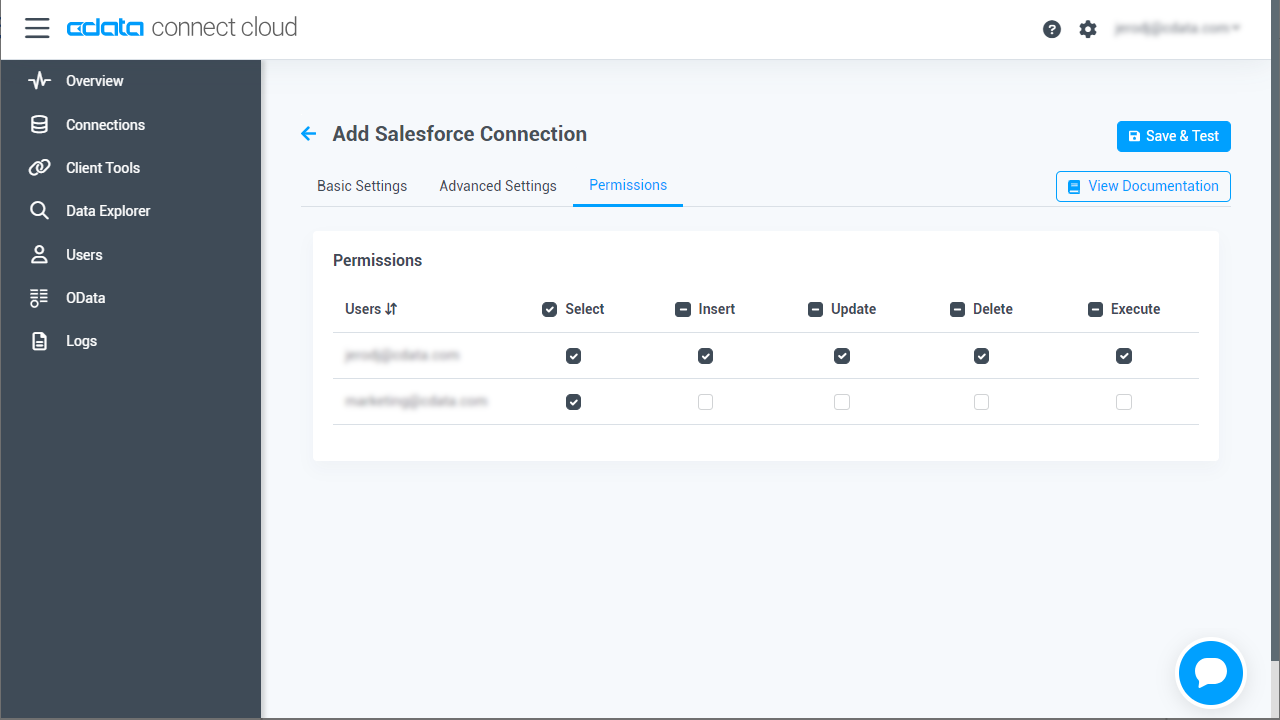
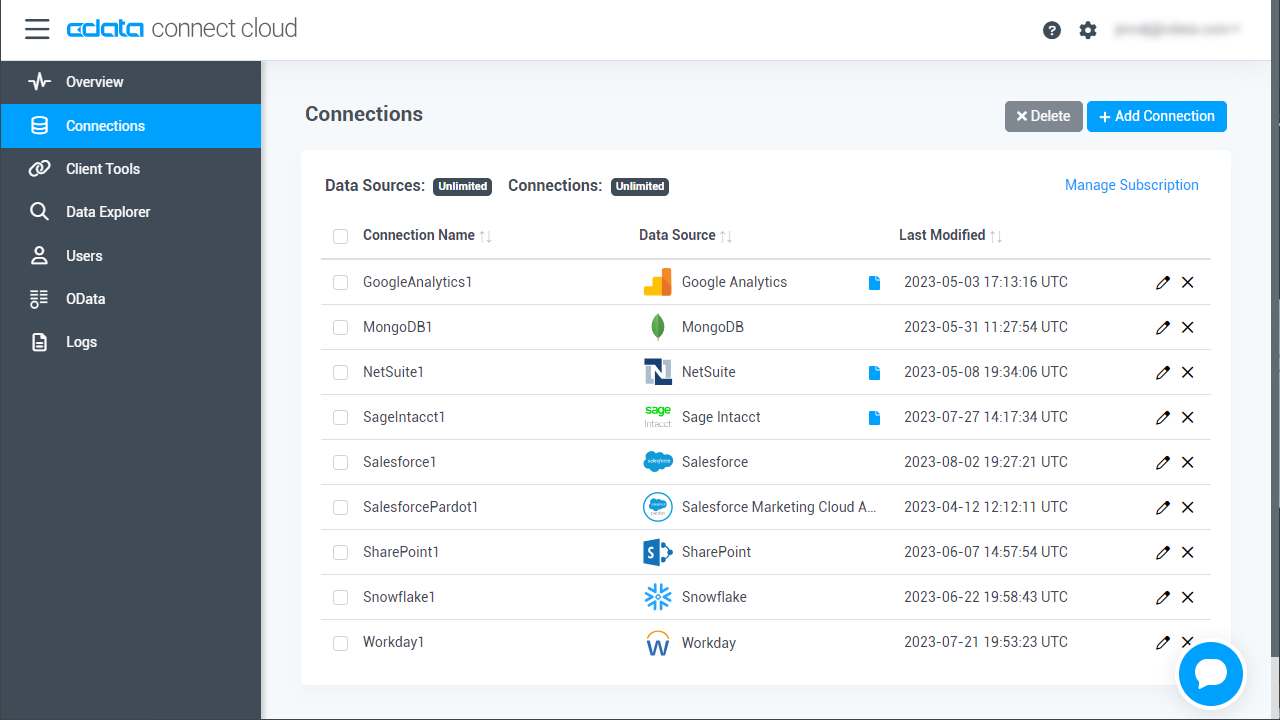
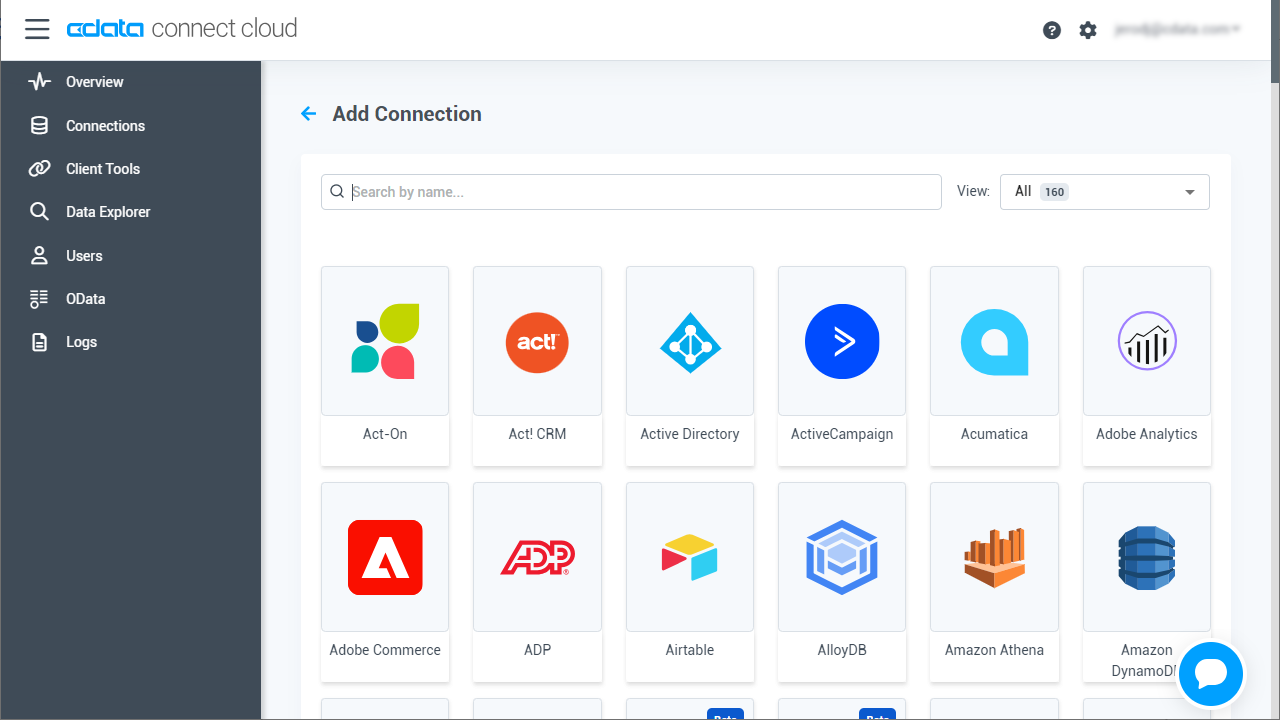
Authenticating to GMO MakeShop Account
Set the following connection properties to connect:
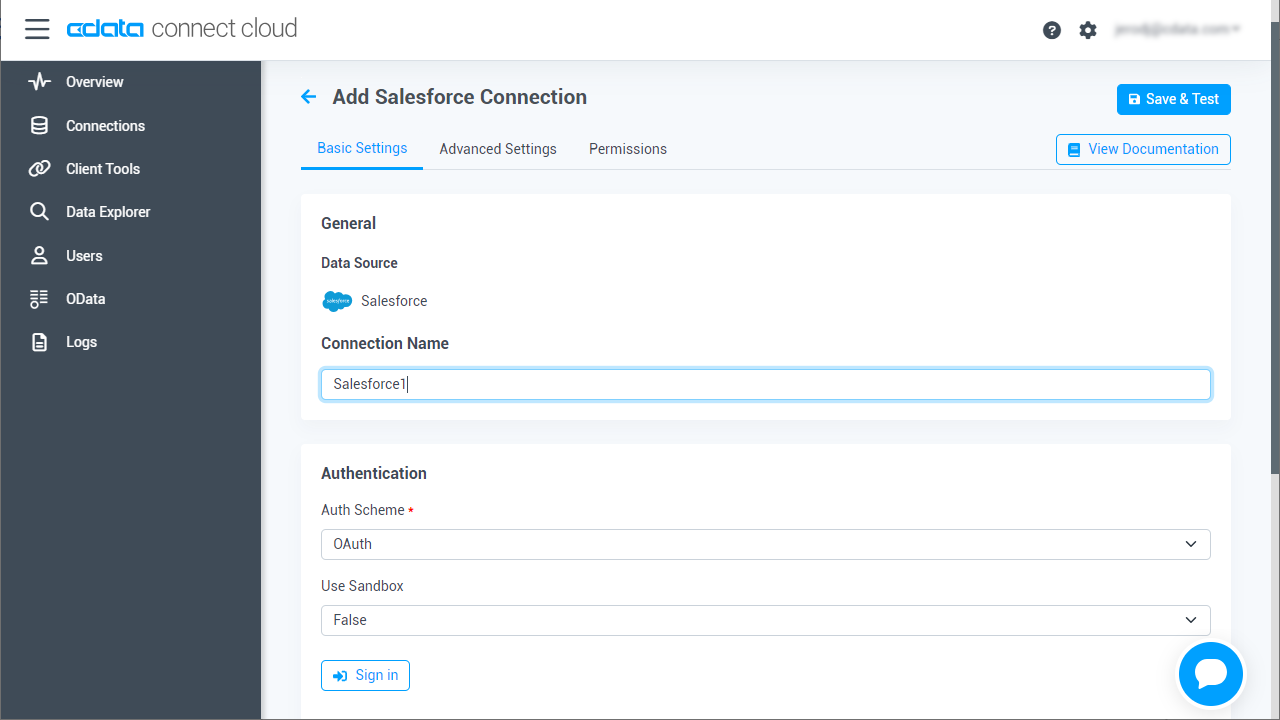
Add a Personal Access Token
If you are connecting from a service, application, platform, or framework that does not support OAuth authentication, you can create a Personal Access Token (PAT) to use for authentication. Best practices would dictate that you create a separate PAT for each service, to maintain granularity of access.
- Click on your username at the top right of the Connect Cloud app and click User Profile.
- On the User Profile page, scroll down to the Personal Access Tokens section and click Create PAT.
- Give your PAT a name and click Create.
- The personal access token is only visible at creation, so be sure to copy it and store it securely for future use.
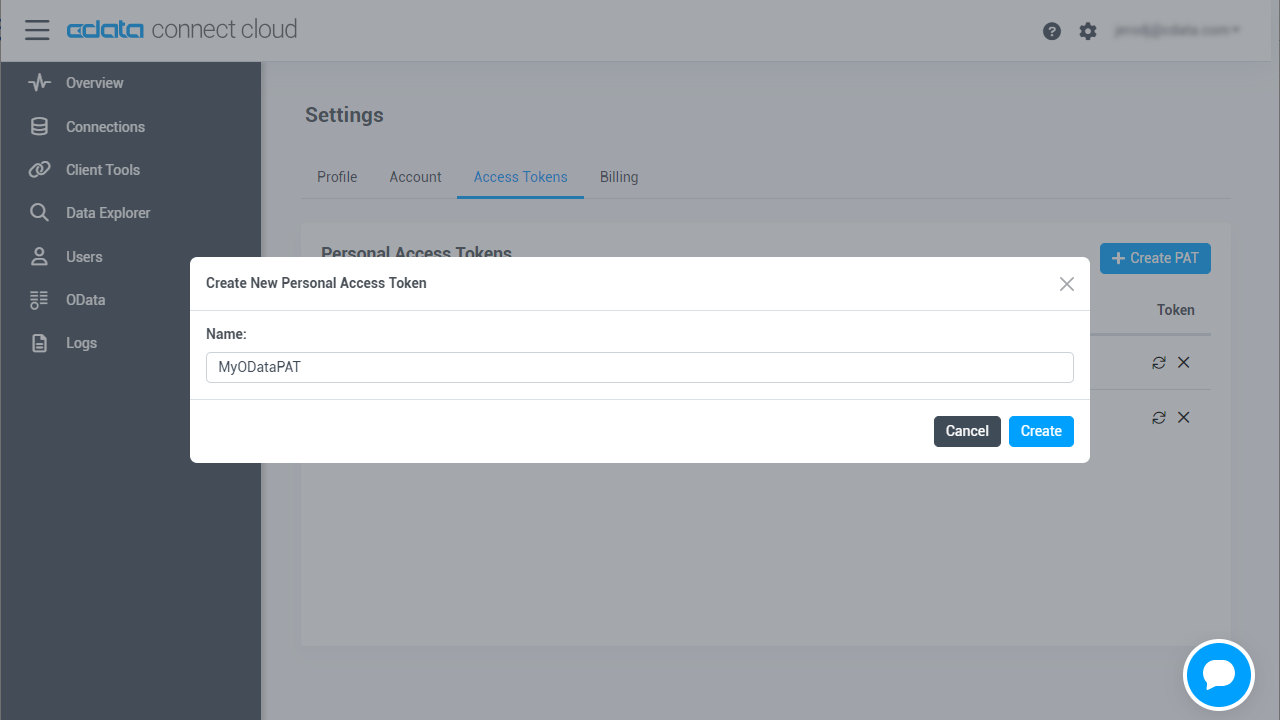
Connect to GMO MakeShop from Crystal Reports using Connect Cloud
To establish a connection from Crystal Reports to CData Connect Cloud, you will need to download the JDBC driver.
- Open the Client Tools page of CData Connect Cloud.
- In the Dev Tools section, click JDBC.
- Download and run the setup file.
- When the installation is complete, locate the JDBC Connect JAR file in the JDBC driver's installation directory, for example, C:\Program Files\CData\JDBC Driver for CData Connect\lib.
- Copy the JDBC Connect JAR file (cdata.jdbc.connect.jar).
After copying the JDBC CData Connect JAR file, you will need to paste it into the Crystal Reports installation location and configure the connection to Connect Cloud.
- Find the installation directory for Crystal Reports, for example, C:\Program Files (x86)\SAP BusinessObjects\SAP BusinessObjects Enterprise XI 4.0\java\lib
- Paste the JDBC Connect JAR file into the Crystal Reports installation directory.
- Go to the parent java folder. For example, C:\Program Files (x86)\SAP BusinessObjects\SAP BusinessObjects Enterprise XI 4.0\java This folder should contain a CRConfig file.
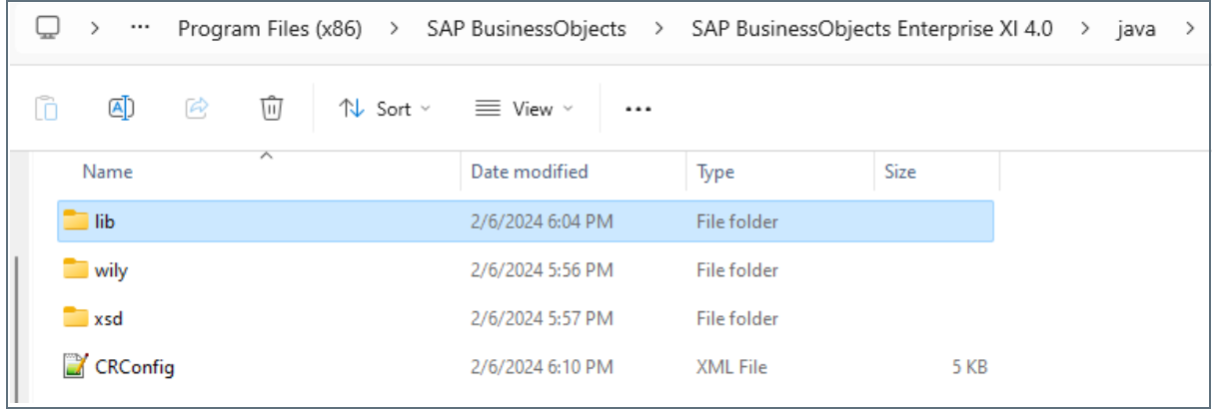
- Open CRConfig in a text editor.
- Add the path to the JDBC CData Connect JAR file in the
of the CRConfig file, for example, C:\Program Files (x86)\SAP BusinessObjects\SAP BusinessObjects Enterprise XI 4.0\java\lib 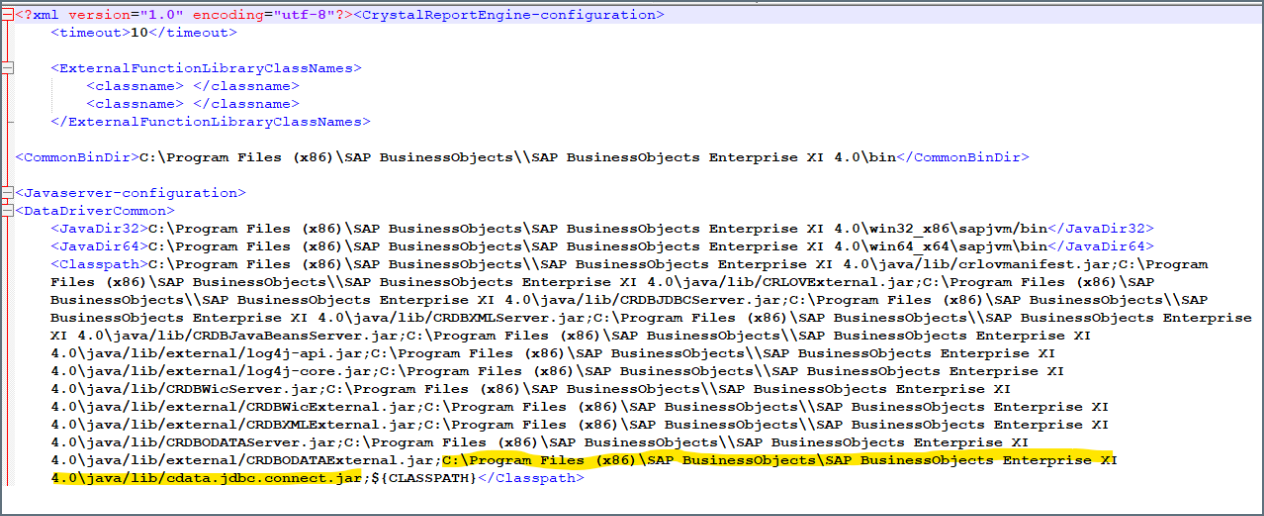
- Log into Crystal Reports and start a blank report.
- In the Database Expert dialog, click Create New Connection.
- Select the JDBC data source and the tables you want to add. Click OK.
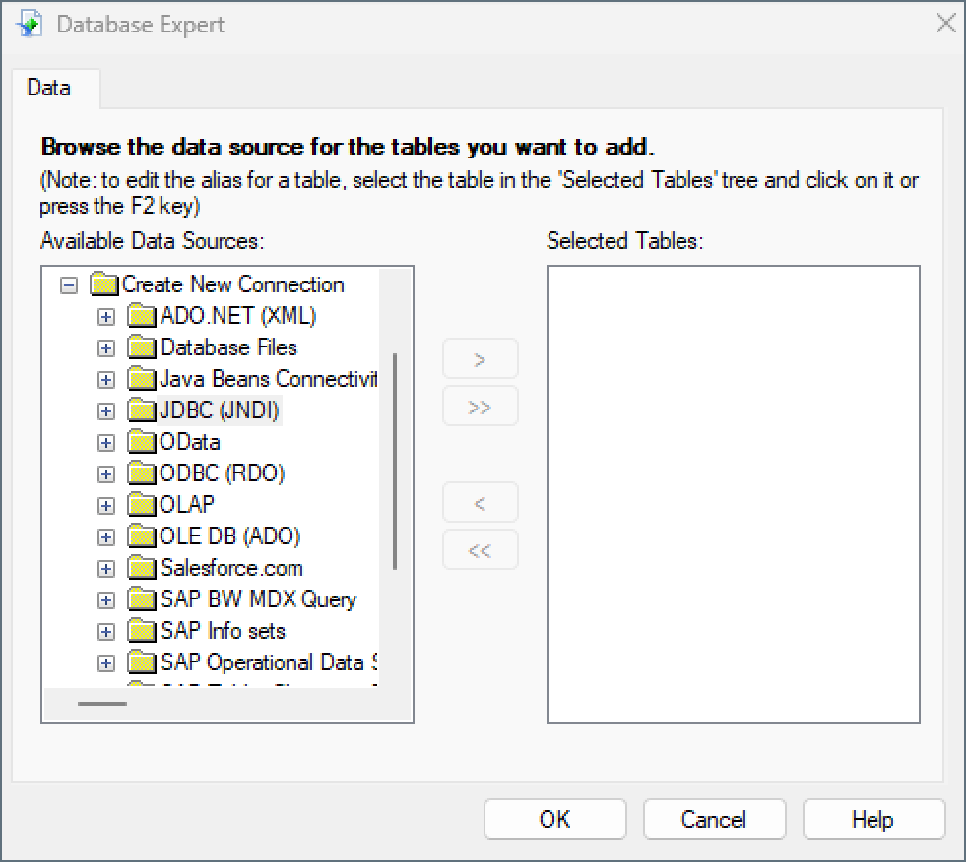
- In the Connection dialog, enter the Connection URL (e.g. jdbc:connect:AuthScheme=OAuth;) and Database Classname (e.g. cdata.jdbc.connect.ConnectDriver).
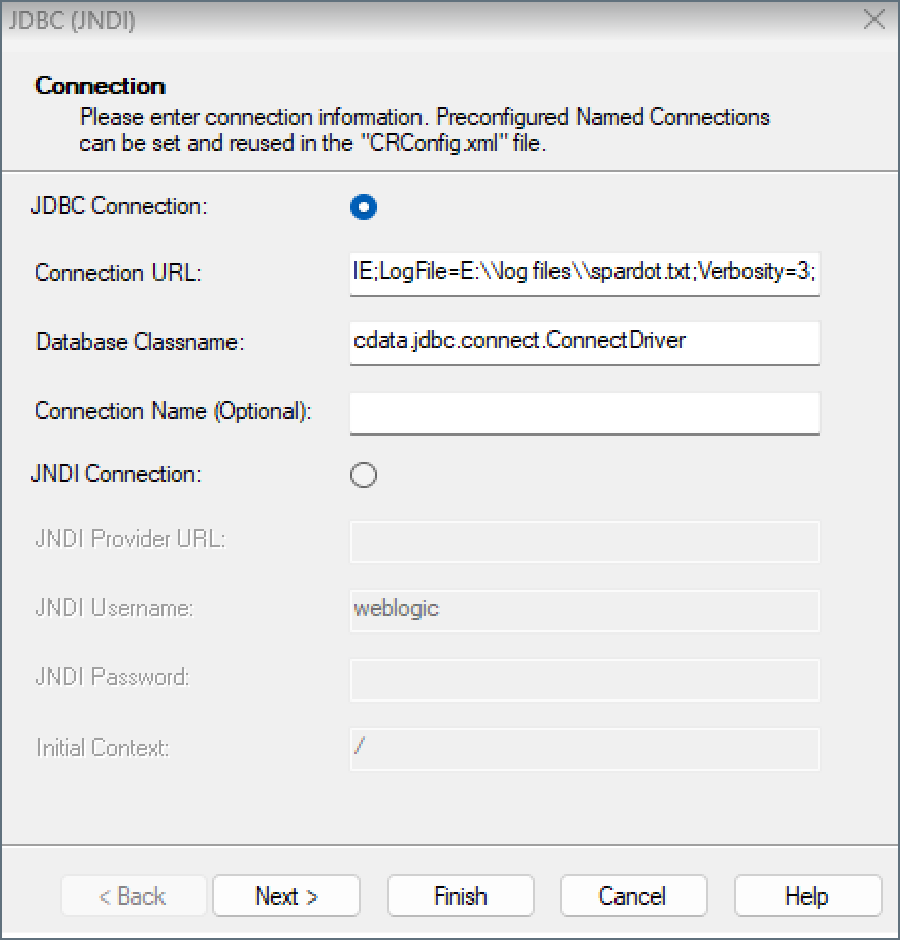
- Click Finish. The Database Expert dialog displays all available connections.
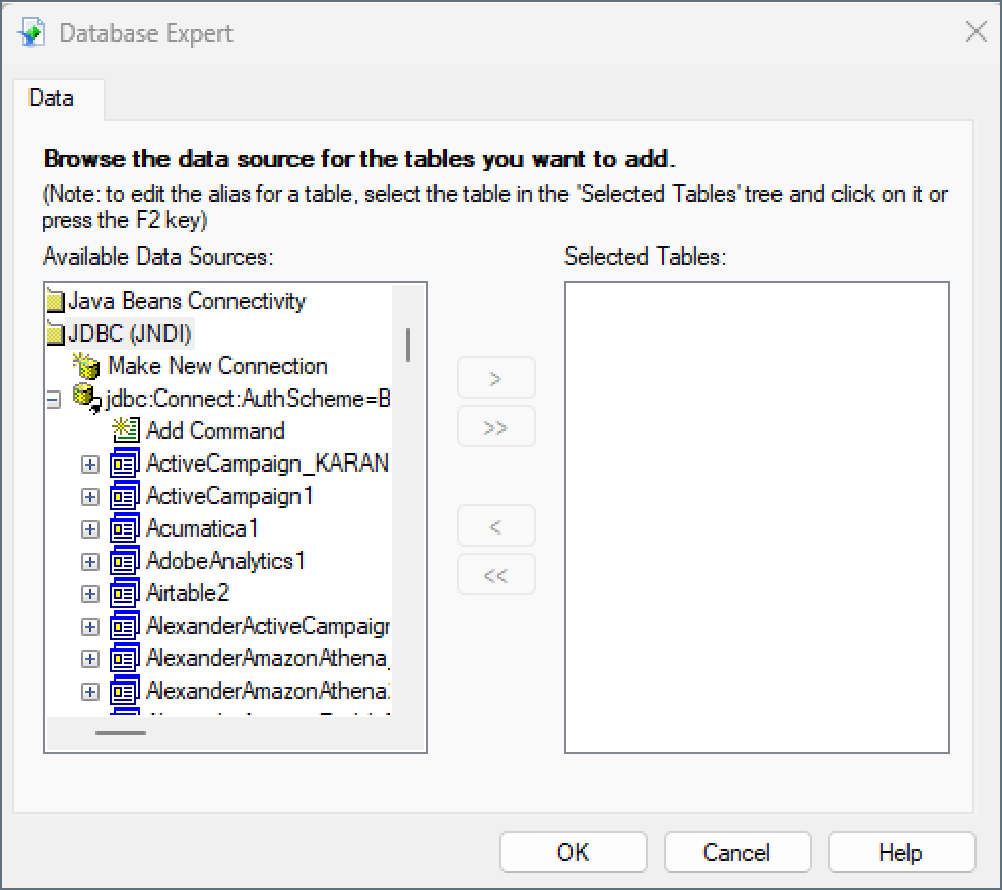
You can now create reports with the connected data.
Get CData Connect Cloud
To get live data access to 100+ SaaS, Big Data, and NoSQL sources directly from Crystal Reports, try CData Connect Cloud today!

